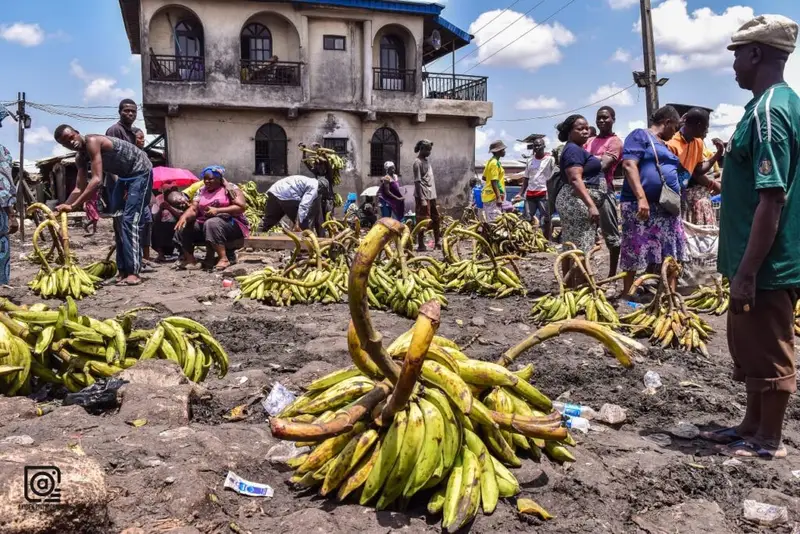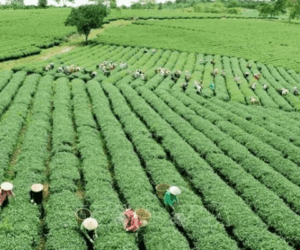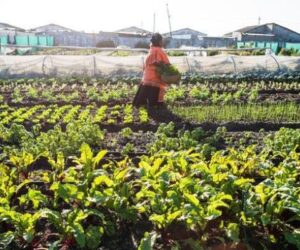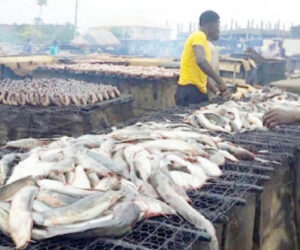By Reporters
Some stakeholders in farm produce in Lagos State on Tuesday, urged the government to build warehouses and hubs to preserve their produce and reduce wastage.
They told the News Agency of Nigeria (NAN) in interviews in Lagos that lack of preservation of farm produce has resulted in huge wastes and losses.
NAN recalls that the United Nations General Assembly in 2018, designated Sept. 29 as International Day of Awareness on Food Loss and Waste, to promote solutions aimed at ending the challenge.
The day also sought to mobilise global efforts toward achieving Sustainable Development Goal target 12.3, which aimed to halve per capital global food waste and reduce food losses along production and supply chains by 2030.
Mr Hafiz Tiamiyu, the Chairman, Tomato Dadi Louis Community, Iworo, Badagry, said provision of tomato hub and seedlings would help to stop wastes and losses.
Tiamiyu said the community lost over N20 million to farm produce waste in 2023, due to lack of preservation.
He said the seedlings hub would give the farmers opportunity to get tomato seedlings for planting instead of going to the state capital and other areas to look for it.
Mr Sunday Ajilo, a Fish Market Leader in Epe, said the menace of post-harvest losses, especially in fisheries, had continued to affect the income of traders and fishermen in the community.
Mrs Iyabo Adegoke, the Iyaloja of Aiyetoro Market, Epe, stressed the need for more storage facilities, adding that poor storage remained one of the major causes of wastage of perishable goods.
Mr Tunde Hunpatin, the Coordinator, Agbalata Coconut Market, Badagry, urged the government to construct preservation machines and warehouses for Coconut in the market.

Agbalata coconut Market in Badagry
According to him, this will help to bring out the sweetness in the coconut and reduce waste of the product.
“They use the machine to preserve coconut in Ghana and this is why the coconut is sweeter than ours in Badagry,” he said.
Mr Akinloye Oladejo, the Baba Oja of Ojokoro Local Council Development Area (LCDA), said the annual wastage affected their profits in the market.
Oladejo urged the government to provide facilities to enhance the food live span to avoid perishing within short periods of time.

Truck loaded with coconut in Badagry market.
Mr Muideen Azeez, the Welfare Officer, Idi Oro Alamutu Market in Mushin said that unstable electricity supply remained one of the major factors affecting the preservation of food and farm produce.
Azeez said the new modern market was still under construction in Idi- Oro Market with facilities to ensure adequate food and fruit preservations.
The market leader also appealed to the government to establish a multi-functional cold room which would accommodate various types of foods and fruits for effective preservation.
“Inconsistent power supply has multiple negative effects on some of the perishable foods and fruits in the market.
“We also beg the state government to expedite construction of the ultramodern market in Mushin, which would accommodate facilities for food preservations.

Coconut Market in Badagry
“The cost of transportation is on the high side and seeing the food perishing within days is not encouraging.
“Two out of 12 dozens of plantain bunch perish due to lack of preservation facilities,” he said.
Azeez urged the government to assist the traders to establish facilities to reduce wastage of produce in the market.
A nutritionist, Mrs Tinuola Bakare, advised consumers to cultivate responsible eating habits, stressing that buying food in excess often led to waste.
She noted that ending food loss and waste would not only strengthen food security but also enhance the livelihood of farmers and traders across the country.
Alhaji Abdul Mohammed, General Secretary, Mile 12, Market, Lagos, said that the lack of storage facilities and preservation remained the major cause of food wastes in market
“Presently, the price of food in the market is high due to the rainy season.
“We lack the facility to store and preserve our farm produce.”
He added that farmers still used the old methods of storage and preservation, which did not last long.
He noted that It was time they began to employ modern ways of preserving foods, which are beyond what farmers could do on their own.
NAN check reveals that a few metres from the building serving as secretariat of the traders’ union in the Mile 12 market, is a truck loaded with onions.
Passersby could barely walk past without holding their breath, due to the stench of decaying onions.
“That truck was seen queuing to be offloaded and half of the onions were already spoilt.”
According to Mohammed, Borno government bought the onions from farmers through their agriculture projects .
“Imagine if this was not a government scheme, the loss would have been borne by the farmers.

Tomato market in Mile 12, Lagos.
According to him, agriculture business is rewarding but greatly unpredictable.
“One of the factors causing food wastage is weather. Whether it is potato, tomato, or onion, fruits cannot be preserved for long. Secondly, transport problem adds to about 30 per cent of food spoilage.
“In the past, tomatoes were not transported in trucks; they were transported in trains and coaches. With modern trains, you can spend not more than five hours from Kano to Lagos but spending a whole day on the road is not the best way to transport perishable goods.
“The problem of transportation is compounded by bad roads. Each time trucks jump into the thousands of potholes on the roads, it causes more damage to the goods.
“Sometimes, trucks are stuck or fell due to bad roads, wasting thousands of tons of food.”(NAN)
Edited by Edith Bolokor/Chioma Ugboma
Published By









